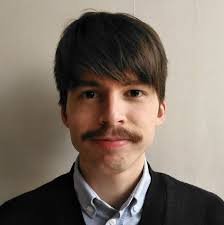Political scientist Karl Holmberg: not surprised that the Global Plastics Treaty has stalled
Doctoral student Karl Holmberg has followed the plastics negotiations throughout the process, and was also present at the second round of negotiations of the global plastics treaty. He is not surprised that the countries did not arrive at an agreement in South Korea in December, as the positions have been locked from beginning. The election of Trump as the new president of the United States may also have had an impact.
Karl Holmberg is a PhD student at the Department of Political Science at Lund University.
– The fact that there was no agreement, I think, will benefit the countries that do not want to see such ambitious commitments, for example Saudi Arabia and China, says Karl Holmberg, PhD student at the Department of Political Science at Lund University.
At the same time, the outcome of the meeting in South Korea, where countries met for a fifth round of negotiations, should not be seen as a defeat, he says. In the international arena, it seems to have become increasingly difficult to reach consensus; and the question is how effective these agreements are if they do not become binding. On the other hand, international agreements can contribute to a shift in norms. The Paris Agreement has possibly created an expectation for countries to change, even if many do not follow the agreement's ambitions.
– Today we have a framework for talking about change. Individuals as well as companies can make demands on decision makers.
A way forward, says Karl, could be for ambitious countries, that want to see a reduction in the production of plastic, and a phasing out of chemicals and unnecessary plastic products, to join together and drive the work within smaller coalitions. One challenge, however, is that USA and China, which are two of the world's largest plastic producers, are unlikely to support overly ambitious, but necessary proposals.
– A stronger coalition of countries that wish to address the plastic problem is always favorable for future negotiations regardless of what happens next. The EU is one of these parties that, relatively speaking, is pushing hard to get an ambitious agreement in place.
The agreement process has also been important in highlighting the problems with plastic pollution, says Karl. Plastic has become more visible and the negotiations have helped to put problems linked to plastics on the agenda; that were previously in the background.
He also believes that in the long run, an agreement will be reached, although it will probably be considerably less sharp than what was initially hoped for.
– It is difficult to get a binding agreement and even more difficult to get an agreement that seriously addresses the ever-increasing amount of plastic that is produced when there are such strong ownership interests from both states and private companies. Therefore, perhaps countries that want and can push these issues should do so now, and not wait for a mediocre agreement to come into place, he says.

